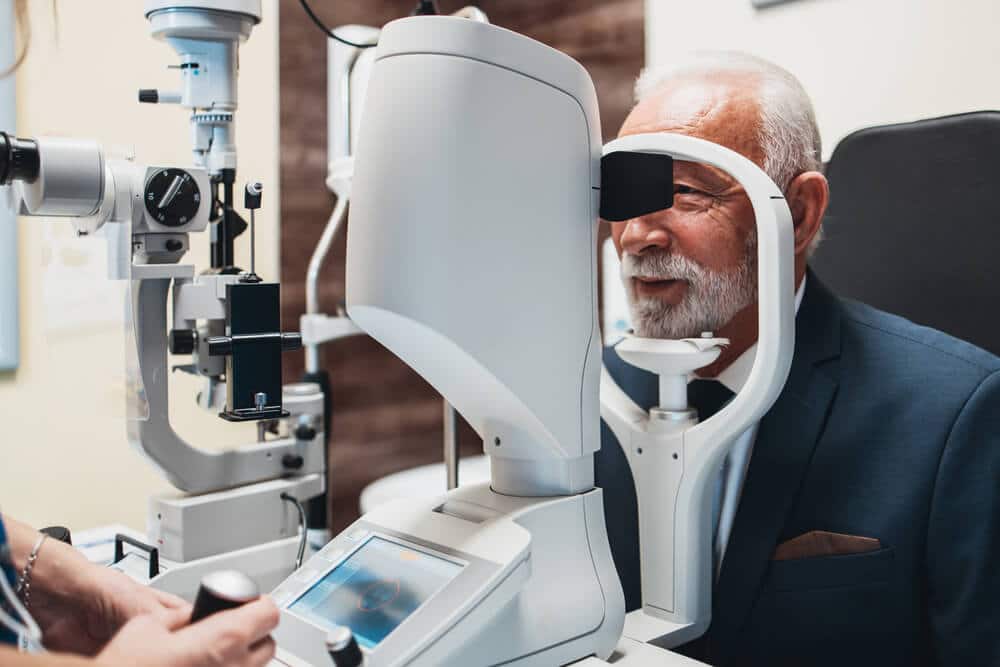Central Serous Retinopathy
Are you looking for treatment for retina conditions like central serous retinopathy? At Retina Associates of Middle Georgia, we’re here to help with all your retina treatment needs.

What is Central Serous Retinopathy?
Central serous retinopathy, also known as central serous chorioretinopathy, is an eye disorder that occurs when fluid builds up underneath the retina. This fluid build-up can lead to visual distortion, making it harder to see clearly.
The fluid builds up in a layer of tissue located under the retina called the choroid. The choroid is an essential part of the retina, as it supplies nutrients and oxygen to its outer layer.
It contains connective tissues and blood vessels. The layer of cells between the retina and choroid is the retinal pigment epithelium (RPE).
If the RPE can’t work as it should, fluid builds up under the retina, causing a small detachment.
Does Central Serous Retinopathy Have Any Warning Signs?
Warning signs or symptoms of central serous retinopathy may include:
• Seeing a dark spot in your central vision
• Objects look like they are smaller or further away than they are
• Seeing straight lines as bent, wavy, irregular, or crooked in the eye that’s affected
• Experiencing vision that seems dim or distorted
• Having blurry central vision
• Looking at objects that are normally white and noticing they have a brown tint or look duller than they are
Although it is more common to develop central serous retinopathy in one eye, it is possible to have it in both at the same time.
Who is Most Likely to Develop Central Serous Retinopathy?
Anyone can develop central serous retinopathy, but men in their thirties through fifties are most at risk for this eye condition. One of the most significant risk factors is being under a lot of stress, regardless of if you’re a man or a woman.
Other risk factors to watch out for with central serous retinopathy include:
• Hypertension or high blood pressure
• Having sleep disorders like insomnia or sleep apnea that make it harder to get a good night’s sleep
• Any use of steroids
• Having autoimmune disorders where the body attacks itself
• Having an infection called Helicobacter pylori, where bacteria can infect the stomach
• Being aggressive or competitive and taking part in type A behavior
If you think you may be at risk for central serous retinopathy, let your eye doctor at Retina Associates of Middle Georgia know.
Treating Central Serous Retinopathy
If your eye doctor diagnoses you with central serous retinopathy, it may not require treatment. Some cases of this eye condition clear up after a month or two without treatment.
However, your ophthalmologist may recommend treatment if the leakage doesn’t stop, or the liquid doesn’t go away. We have several ways of treating central serous retinopathy at Retina Associates of Middle Georgia, including laser treatments, anti-VEGF injections, and topical medications.
Laser treatments aim to seal the leak that central serous retinopathy causes and restore your vision. Anti-VEGF injections work similarly but instead seek out VEGF to reduce the growth of abnormal blood vessels where fluid has built up.
Topical non-steroidal medications can be another way of helping to reduce fluid build-up in the retina due to central serous retinopathy. Your eye doctor will recommend the best treatment option based on the severity of your symptoms and the duration of the condition.
Do you have central serous retinopathy? Find out which treatment may be right for you by scheduling an appointment at Retina Associates of Middle Georgia in Macon, GA, today!


